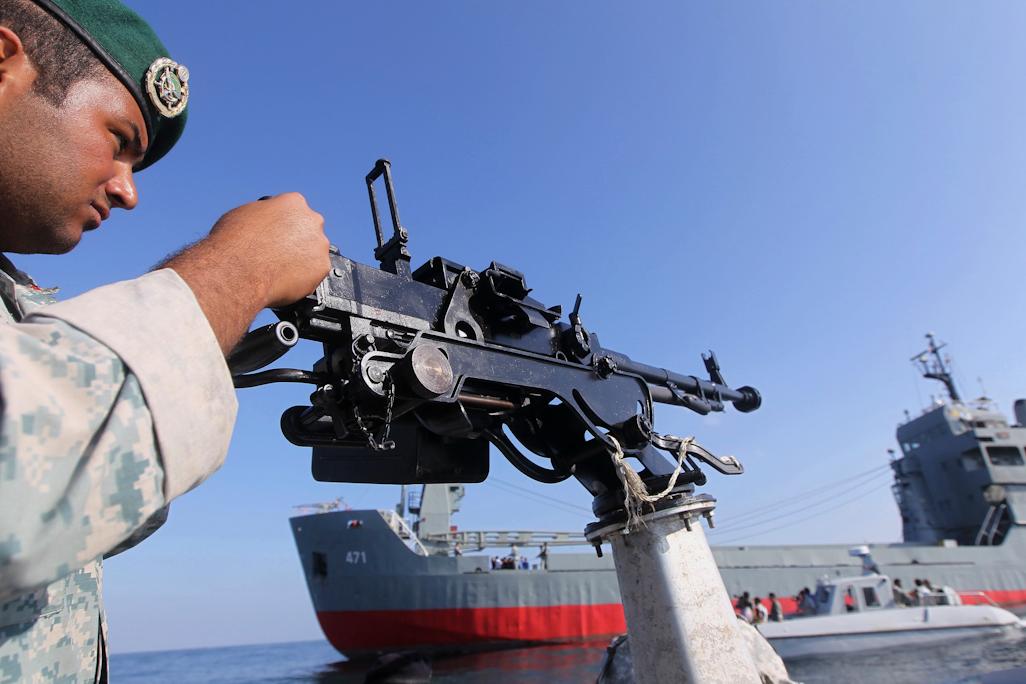Strait of Hormuz: War of words over Iran oil blockade threats (VIDEO)
An Iranian Army soldier stands guard on a military speed boat during the ‘Velayat-90’ navy exercises in the Strait of Hormuz in southern Iran on Dec. 28, 2011.
In an escalating war of words over the Strait of Hormuz, a key oil supply route in the Persian Gulf, Iran today rejected a US warning to Tehran over threats to block oil shipments.
“The Islamic Republic of Iran asks for no other country's permission for the implementation of its defense strategies,” Revolutionary Guard commander Hossein Salami said, according to Iran's state-run Press TV.
The United States on Wednesday "strongly warned" Iran after it threatened to stop the flow of oil through the Strait of Hormuz, a shipment route for about 15 million barrels of oil a day, if Washington imposes sanctions on the country's crude exports.
More from GlobalPost: 5 key facts about the Strait of Hormuz
"This is not just an important issue for security and stability in the region, but is an economic lifeline for countries in the gulf, to include Iran," Pentagon press secretary George Little told the Associated Press. "Interference with the transit or passage of vessels through the Strait of Hormuz will not be tolerated."
The US warning came after Iran's navy chief on Wednesday said it would be "very easy" to close the Strait of Hormuz to oil traffic — "easier than drinking a glass of water," Reuters reported him as saying.
More from GlobalPost: Iran threatens to stop Gulf oil flow if West sets new sanctions
On Tuesday, Iran's Vice President Mohammed Reza Rahimi threatened an oil blockade as Iran’s naval forces were in the middle of a 10-day war games exercise in the Arabian Sea and Gulf of Oman, The New York Times reported.
“If Iran oil is banned not a single drop of oil will pass through Hormuz Strait,” Rahimi was quoted as saying by the official Islamic Republic News Agency, The Times reported.
The increasingly heated exchange raises new tensions in a standoff that has the potential to spark military reprisals and spike oil prices to levels that could batter an already fragile global economy.
More from GlobalPost: US Senate approves sanctions targeting Iranian oil
Tensions between the West and Iran have increased since Nov. 8, when a UN report said Tehran was working on designing an atomic bomb. Iran strongly denied the report and said it is developing nuclear energy for peaceful purposes, Reuters reported.
On Thursday oil prices hovered below $100 a barrel, as investors closely monitored developments in the Persian Gulf, the AP said.
More from GlobalPost: Israeli PM calls for tougher sanctions on Iran
We want to hear your feedback so we can keep improving our website, theworld.org. Please fill out this quick survey and let us know your thoughts (your answers will be anonymous). Thanks for your time!
